It’s not the time to say whether Google Buzz is successful or not. But it has already buzzed the social network. Everyone ia talking about it now. A week ago Apple iPad was all over the tech news. Now Google has captured the spotlight with its integrating social service Google Buzz. First everyone thought Google will bring something new. I think no one has ever thought about integrating Twitter and other social services together in one platform.
Is Buzz — Google’s new Twitter and Facebook-like social stream — the product that’s going to win Google a dominant — or at least prominent — place in the social web?
It is difficult for Google Buzz to compete with Facebook. They only integrated Twitter. Twitter has 18 million users, Gmail has 36 million or so. On the other hand Facebook has 400 million users at least.
Integration with existing social networks are critical for Buzz’s success — especially Facebook. When Google unveiled Buzz today, it announced that the app will share your Twitter updates with your Buzz followers. That’s great news, but you won’t be as thrilled to learn that (at least at launch) there will be no integration with Facebook at all.
Google Buzz With Twitter
When you post a new tweet using Twitter, Google can import that tweet and send it out to your Buzz followers with the rest of your Buzz updates. You won’t have to jump through any hoops or use any back-door methods to make it happen. Twitter is officially supported by Buzz — the same is true of Flickr, Picasa, Blogger and YouTube.
However, you won’t be able to publish out to Twitter using Buzz, which makes this all seem less useful. And since Buzz won’t aggregate tweets from your Twitter followers (unless you happen to be following them on Buzz and they also happen to be pushing their tweets into Buzz as described previously), you’ll still have to keep both Twitter and Buzz open to reach all your contacts across both networks.
That’s disappointing, but it’s no where near as disappointing as Buzz’s completely nonexistent relationship with Facebook.
Google Buzz Without Facebook
While Buzz and Twitter have some connectivity, there’s none at all between Buzz and Facebook. Buzz doesn’t import your Facebook status updates. It doesn’t post updates to your Facebook feed. It doesn’t display your friends’ feed updates. There’s no Facebook Connect integration at all. When asked about it this morning, Google said it has nothing to announce at this time.
Google is going to have a difficult time building a userbase when everyone who has a Facebook profile (that’s just about everyone who uses the social web at all now) is concerned that they can’t see their friends’ updates. They’ll have to keep using Facebook to stay in touch with their Facebook friends.
With more than 400 million users, Facebook is the world’s largest social network; Twitter by contrast has only 18 million or so. Gmail’s unique visitors numbered around 36 million as of last year. Clearly, Facebook is dominating. Google is attempting to challenge that dominance with Buzz, but Facebook is at the same time planning to move just as aggressively into Google’s territory.
It was recently discovered that Facebook will eventually launch its own webmail service. You can already send messages to e-mail addresses from Facebook, but the execution isn’t as smooth as it needs to be. The new e-mail plan would address that.
Codenamed Project Titan, the service would offer users e-mail addresses ending in @facebook.com. Facebook would become the largest webmail provider overnight. If the service is functional enough, it could threaten Google’s Gmail. People will be able to comfortably make the switch because they won’t lose the ability to e-mail their Gmail contacts — even if they move to another mail provider.
Facebook is threatening Google, but Google isn’t threatening Facebook because it doesn’t offer any features so great that they incentivize people to leave behind their existing networks or spend their time updating and following yet another one when their friends are already all on Facebook or Twitter.
Facebook now dominates the social web so completely that it’s difficult to imagine an exodus to a competing service, unless that service offered some revolutionary new features that Facebook couldn’t possibly match — Buzz doesn’t.
One success scenario can be pictured, i.e., a service that aggregates other services’ features and content, and then offers up its own set of unique perks (like Buzz’s noise-control algorithms) that make the social web experience better. People would feel comfortable switching for the extra perks, because they wouldn’t have to leave their existing connections behind.
The outlook could change if Buzz integrates with Facebook the way it does with Twitter. Unless that happens, though, you’re better off keeping your bets on Facebook in the coming year or two — at least if your standard of success is something greater than niche appeal.
Source: Mashable

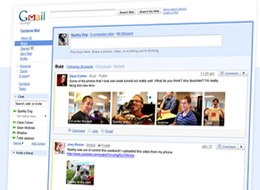
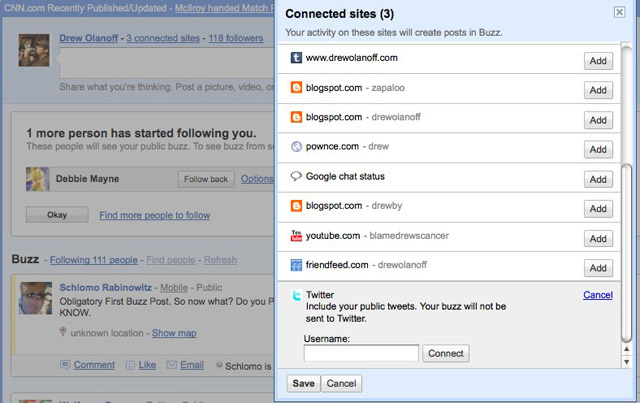
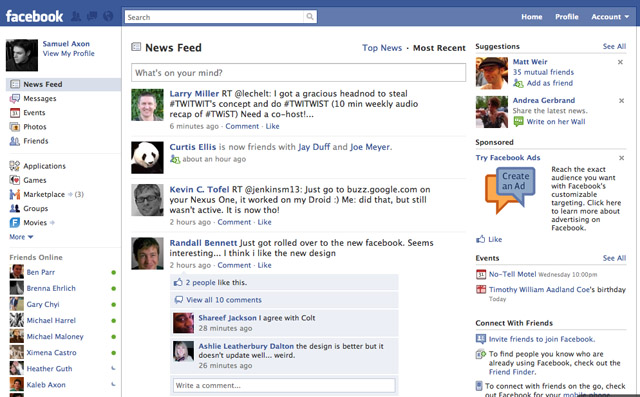
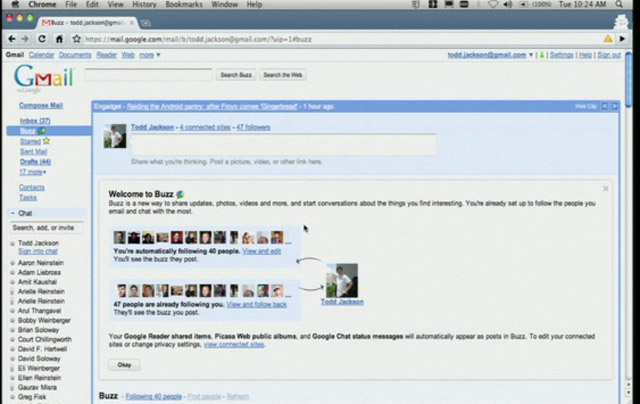
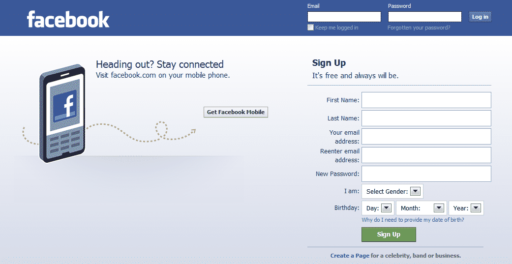
When reflecting on Buzz vs Facebook competition author completely forgot Wave promises…
Well, Bulat, wave is in Beta version. Let it come, then everyone will see. My focus was that Google linked Twitter but why not Facebook? It has over 400 million users.
Pingback: Zack Live